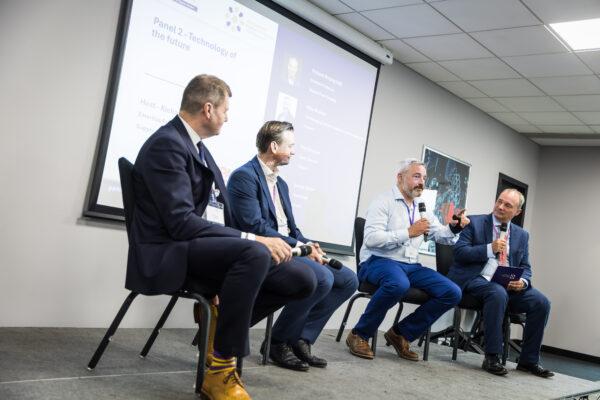Technology investment in the supply chain sector should be sharply focused on solving specific, real-world operational challenges rather than serving as ‘vanity projects’, according to senior leaders at Unipart.
Speaking at a panel session on technology at the CILT Partnerships Day on 12 June, hosted by Professor Richard Wilding OBE, Unipart leaders emphasised a strategic and pragmatic approach to innovation.
Mike Bristow, Managing Director of Unipart Logistics UK, highlighted the company’s 50-year evolution from an automotive parts supplier to a diverse organisation spanning seven sectors. He stressed that targeted technology is key to managing such complexity effectively.
The panel cautioned against investing in technology for its own sake, advocating instead for solutions that address specific problems and deliver a predictable return on investment. James Simester, Unipart Technology Director, illustrated this by detailing Unipart’s use of artificial intelligence in the rail sector. “We now collect 4-5 million data points daily from 600 trains, using AI to optimise asset management, predict maintenance needs, and reduce operational costs,” he explained. This move from periodic to condition-based maintenance exemplifies a problem-solving approach.
The discussion also underscored that technology should augment, not replace, the human workforce. The goal is to eliminate repetitive tasks, freeing employees to make more strategic decisions. The panelists agreed logistics remains fundamentally a people-driven industry.
Phil Kirkham, Unipart Signite Sales Director, added technology must be integrated seamlessly to create automated supply chain processes. He said: “Integrating technology doesn’t matter whether it’s a single solution or multiple solutions. Tying them together, making sure that you’ve got a single transaction without manual intervention, is the way forward.”
Looking ahead, the panel identified skills like data literacy, curiosity, and a willingness to challenge processes as vital for the future. The key takeaway was that while AI and automation are powerful tools, human creativity and strategic thinking remain irreplaceable in driving true progress.

